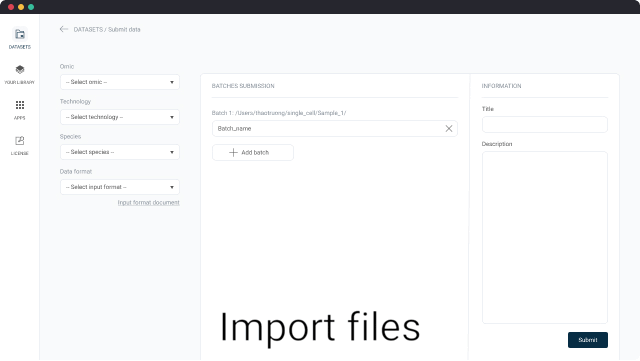Impaired local intrinsic immunity to SARS-CoV-2 infection in severe COVID-19
Carly G.K. Ziegler, Vincent N. Miao, Anna H. Owings, Andrew W. Navia, Ying Tang, Joshua D. Bromley, Peter Lotfy, Meredith Sloan, Hannah Laird, Haley B. Williams, Micayla George, Riley S. Drake, Taylor Christian, Adam Parker, Campbell B. Sindel, Molly W. Burger, Yilianys Pride, Mohammad Hasan, George E. Abraham III, Michal Senitko, Tanya O. Robinson, Alex K. Shalek, Sarah C. Glover, Bruce H. Horwitz, Jose Ordovas-Montanes
Abstract
SARS-CoV-2 infection can cause severe respiratory COVID-19. However, many individuals present with isolated upper respiratory symptoms, suggesting potential to constrain viral pathology to the nasopharynx. Which cells SARS-CoV-2 primarily targets and how infection influences the respiratory epithelium remains incompletely understood. We performed scRNA-seq on nasopharyngeal swabs from 58 healthy and COVID-19 participants. During COVID-19, we observe expansion of secretory, loss of ciliated, and epithelial cell repopulation via deuterosomal cell expansion. In mild and moderate COVID-19, epithelial cells express anti-viral/interferon-responsive genes, while cells in severe COVID-19 have muted anti-viral responses despite equivalent viral loads. SARS-CoV-2 RNA+ host-target cells are highly heterogenous, including developing ciliated, interferon-responsive ciliated, AZGP1high goblet, and KRT13+ “hillock”-like cells, and we identify genes associated with susceptibility, resistance, or infection response. Our study defines protective and detrimental responses to SARS-CoV-2, the direct viral targets of infection, and suggests that failed nasal epithelial anti-viral immunity may underlie and precede severe COVID-19.
Datasets
1. Nasopharynx
Metadata
donor_id
Bloody_Swab
SARSCoV2_PCR_Status
SARSCoV2_PCR_Status_and_WHO_Score
Cohort_Disease_WHO_Score
biosample_id
SingleCell_SARSCoV2_RNA_Status
Coarse_Cell_Annotations
Detailed_Cell_Annotations
Annotation
assay_ontology_term_id
cell_type_ontology_term_id
development_stage_ontology_term_id
disease_ontology_term_id
self_reported_ethnicity_ontology_term_id
organism_ontology_term_id
sex_ontology_term_id
tissue_ontology_term_id
suspension_type
tissue_type
cell_type
assay
disease
organism
sex
tissue
self_reported_ethnicity
development_stage
COVID19_Participant342140 cells COVID19_Participant202033 cells COVID19_Participant41680 cells COVID19_Participant321665 cells Control_Participant101645 cells Control_Participant31620 cells Control_Participant111164 cells COVID19_Participant281079 cells COVID19_Participant151003 cells Control_Participant18961 cells Control_Participant16869 cells Control_Participant17867 cells COVID19_Participant22865 cells COVID19_Participant17843 cells COVID19_Participant19816 cells COVID19_Participant26814 cells Control_Participant7762 cells COVID19_Participant13730 cells Control_Participant5717 cells COVID19_Participant37668 cells COVID19_Participant29573 cells Control_Participant9558 cells Control_Participant15528 cells COVID19_Participant25496 cells COVID19_Participant8462 cells COVID19_Participant39454 cells Control_Participant4440 cells Control_Participant1414 cells COVID19_Participant31410 cells COVID19_Participant7409 cells Control_Participant8393 cells COVID19_Participant11382 cells COVID19_Participant14382 cells COVID19_Participant40381 cells COVID19_Participant2329 cells Control_Participant21324 cells COVID19_Participant23307 cells Control_Participant20280 cells Control_Participant14274 cells COVID19_Participant18227 cells COVID19_Participant36200 cells COVID19_Participant33166 cells Control_Participant6131 cells COVID19_Participant30116 cells COVID19_Participant3104 cells COVID19_Participant12102 cells Control_Participant1299 cells COVID19_Participant2793 cells COVID19_Participant589 cells Control_Participant1388 cells COVID19_Participant986 cells COVID19_Participant684 cells COVID19_Participant3583 cells COVID19_Participant3851 cells Control_Participant241 cells COVID19_Participant2139 cells Control_Participant1934 cells COVID19_Participant1018 cells COVID19_WHO_6-812909 cells COVID19_WHO_1-55164 cells ConvalescentCOVID19_WHO_02306 cells WHO_0_COVID19_Participant342140 cells WHO_7_COVID19_Participant202033 cells WHO_8_COVID19_Participant41680 cells WHO_7_COVID19_Participant321665 cells WHO_0_Control_Participant101645 cells WHO_0_Control_Participant31620 cells WHO_0_Control_Participant111164 cells WHO_8_COVID19_Participant281079 cells WHO_8_COVID19_Participant151003 cells WHO_8_Control_Participant18961 cells WHO_8_Control_Participant16869 cells WHO_8_Control_Participant17867 cells WHO_5_COVID19_Participant22865 cells WHO_8_COVID19_Participant17843 cells WHO_8_COVID19_Participant19816 cells WHO_8_COVID19_Participant26814 cells WHO_0_Control_Participant7762 cells WHO_8_COVID19_Participant13730 cells WHO_0_Control_Participant5717 cells WHO_1_COVID19_Participant37668 cells WHO_4_COVID19_Participant29573 cells WHO_0_Control_Participant9558 cells WHO_0_Control_Participant15528 cells WHO_4_COVID19_Participant25496 cells WHO_4_COVID19_Participant8462 cells WHO_1_COVID19_Participant39454 cells WHO_0_Control_Participant4440 cells WHO_0_Control_Participant1414 cells WHO_6_COVID19_Participant31410 cells WHO_3_COVID19_Participant7409 cells WHO_0_Control_Participant8393 cells WHO_5_COVID19_Participant11382 cells WHO_8_COVID19_Participant14382 cells WHO_3_COVID19_Participant40381 cells WHO_8_COVID19_Participant2329 cells WHO_8_Control_Participant21324 cells WHO_8_COVID19_Participant23307 cells WHO_8_Control_Participant20280 cells WHO_0_Control_Participant14274 cells WHO_8_COVID19_Participant18227 cells WHO_1_COVID19_Participant36200 cells WHO_0_COVID19_Participant33166 cells WHO_0_Control_Participant6131 cells WHO_8_COVID19_Participant30116 cells WHO_7_COVID19_Participant3104 cells WHO_8_COVID19_Participant12102 cells WHO_0_Control_Participant1299 cells WHO_8_COVID19_Participant2793 cells WHO_5_COVID19_Participant589 cells WHO_0_Control_Participant1388 cells WHO_8_COVID19_Participant986 cells WHO_5_COVID19_Participant684 cells WHO_1_COVID19_Participant3583 cells WHO_7_COVID19_Participant3851 cells WHO_0_Control_Participant241 cells WHO_8_COVID19_Participant2139 cells WHO_8_Control_Participant1934 cells WHO_5_COVID19_Participant1018 cells Ciliated Cells10059 cells Developing Ciliated Cells3854 cells Secretory Cells3633 cells Deuterosomal Cells583 cells Developing Secretory and Goblet Cells406 cells Mitotic Basal Cells266 cells Enteroendocrine Cells41 cells Developing Ciliated Cells3854 cells FOXJ1 high Ciliated Cells3529 cells CCL5 high Squamous Cells3452 cells Early Response FOXJ1 high Ciliated Cells1848 cells Cilia high Ciliated Cells1740 cells BEST4 high Cilia high Ciliated Cells1616 cells Interferon Responsive Ciliated Cells1326 cells BPIFA1 high Secretory Cells1271 cells AZGP1 high Goblet Cells1036 cells MUC5AC high Goblet Cells944 cells SERPINB11 high Secretory Cells813 cells SCGB1A1 high Goblet Cells729 cells HOPX high Squamous Cells646 cells Early Response Secretory Cells605 cells VEGFA high Squamous Cells603 cells Deuterosomal Cells583 cells KRT24 KRT13 high Secretory Cells563 cells SPRR2D high Squamous Cells549 cells ITGAX high Macrophages546 cells Developing Secretory and Goblet Cells406 cells Early Response T Cells331 cells Mitotic Basal Cells266 cells BPIFA1 and Chemokine high Secretory Cells243 cells Inflammatory Macrophages222 cells Interferon Responsive Cytotoxic CD8 T Cells141 cells Interferon Responsive Secretory Cells138 cells AZGP1 SCGB3A1 LTF high Goblet Cells98 cells MSR1 C1QB high Macrophages82 cells Enteroendocrine Cells41 cells Interferon Responsive Macrophages33 cells FFAR4 high Macrophages20 cells Ciliated Cells10059 cells Developing Ciliated Cells3854 cells Secretory Cells3633 cells Deuterosomal Cells583 cells Developing Secretory and Goblet Cells406 cells Mitotic Basal Cells266 cells Enteroendocrine Cells41 cells HsapDv:000024111200 cells NCBITaxon:960632588 cells UBERON:000172832588 cells squamous epithelial cell5250 cells nasal mucosa goblet cell2807 cells CD8-positive, alpha-beta T cell1003 cells multi-ciliated epithelial cell583 cells inflammatory macrophage222 cells CD8-positive, alpha-beta cytotoxic T cell141 cells enteroendocrine cell41 cells plasmacytoid dendritic cell13 cells respiratory failure3335 cells seventh decade human stage11200 cells sixth decade human stage9295 cells fourth decade human stage3721 cells eighth decade human stage3351 cells fifth decade human stage3138 cells third decade human stage1501 cells ninth decade human stage382 cells Analyze this study
Source data
https://cellxgene.cziscience.com/collections/35d0b748-3eed-43a5-a1c4-1dade5ec5ca0
Alias names
SCP1289, PMID34352228, PMC8299217
Cite this study
Ziegler, C.G., Miao, V.N., Owings, A.H., Navia, A.W., Tang, Y., Bromley, J.D., Lotfy, P., Sloan, M., Laird, H., Williams, H.B. and George, M., 2021. Impaired local intrinsic immunity to SARS-CoV-2 infection in severe COVID-19. Cell, 184(18), pp.4713-4733. https://doi.org/10.1016/j.cell.2021.07.023

